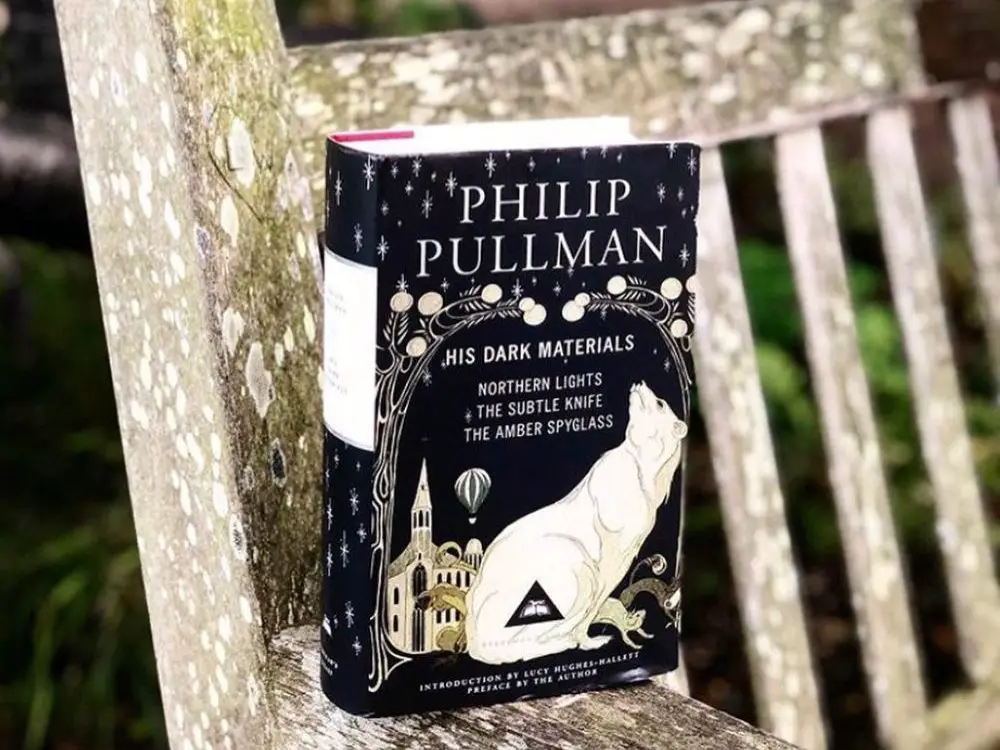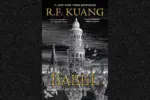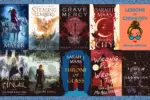Throughout the last century, British authors have produced some of the best works of fantasy literature to date. C. S. Lewis, J. R. R. Tolkien and others have redefined world-building and the battle for good and evil, taking old magical tropes and making them new. If you’ve read through the aforementioned greats, you may be wondering if any other works can measure up. Well, look no further: With armored bears, truth-telling gadgets and a battle against corrupt power, “His Dark Materials” has all the makings of an epic across-the-pond series.
“His Dark Materials” is a trilogy of books by Philip Pullman that begins with “The Golden Compass,” published as “The Northern Lights” outside of North America. The series follows the story of Lyra Belacqua, a feisty 11-year-old who lives in an alternate version of Oxford, England. Unaware of her parents’ identities, Lyra lives under the care of the master at Jordan College, a fictional college within the real Oxford University, and frequently stirs up excitement and trouble with other children in the city. As studies of a type of particle relating to human consciousness — called “Dust” by some scholars — generate tensions at the university and beyond, Lyra gets swept up in a journey to far-flung places in which she confronts both truth and evil.
The trilogy is fantastical and takes place in a multiverse, though many of the locations contain parallels to our own world — indeed, our world is part of the multiverse that Pullman constructs. Many of the fantasy elements of the story are new takes on familiar ideas: Pullman’s world-building, spanning not only places but also cultures and customs, draws from real locations and common themes such as witchcraft.
Perhaps the most distinctive element of the universe is the presence of daemons. In Lyra’s world, each person’s soul is manifested in a daemon, a corporeal animal that always accompanies them and with whom they can speak and communicate. Lyra’s daemon, Pantalaimon, is a key character throughout the series, and informs Lyra’s own personality and values.
With its vivid characters and imaginative world-building, “His Dark Materials” has established itself as a well-known and well-loved fantasy series. Upon its release in the late 1990s, “The Golden Compass” was heralded as “arguably the best juvenile fantasy novel of the past 20 years.” But while the books have long been marketed within the children’s genre, they contain heavy themes that appeal to readers of all ages. Pullman himself has remarked on the fact that he did not write the story for a particular audience, despite the protagonist’s young age.
“I don’t know whether [The Golden Compass] is a young adult book or children’s book or adult book that somehow sneaked its way into a children’s bookstore,” Pullman said in an interview. “If you asked what sort of audience I would like, I would say a mixed one, please. Children keep your attention on the story because you want to tell it so clearly that nobody wishes to stop listening. And the adults remind you not to patronize or underestimate the intelligence of the children.”
This complex question of the series’s intended audience has led to much controversy, mainly stemming from its religious commentary. Heavily inspired by the poet John Milton, Pullman wrote “His Dark Materials” as a retelling of the epic poem “Paradise Lost.” Pullman’s story is epic just like Milton’s, but he takes a different slant.
“What I wanted to do was represent the fall as entirely good,” Pullman said in the same interview. “It is good for people to know things, to grow up, to become sexual beings.”
Indeed, the central tension of “His Dark Materials” arises between the explorers interested in learning more about human consciousness and the Magisterium, Britain’s religious authority, which is interested in suppressing any heretical dissent. Many readers have drawn parallels between the Magisterium and the Catholic Church, assuming that Pullman’s series makes a direct critique against Catholic doctrine and belief. For conservative Christian parents, “His Dark Materials” appears to pose a threat to their children and their values.
But while Pullman has been vocal about his distaste for organized religion, the “organized” part is key in understanding his views. Pullman’s real issue is not religious belief itself, but religious power, and how it attempts to undermine personal freedom and understanding. In “The Golden Compass,” for example, Lyra realizes that the Magisterium is performing experiments in which they sever the ties between human children and their daemons, effectively removing children’s souls in order to prevent them from developing ideas contrary to church doctrine.
Pullman is particularly adamant about the danger of using God and religious power to justify evil acts, a concern reflected in “His Dark Materials.” As the Magisterium continues to grasp for control over public thought and scientific discovery, religious officials frequently use horrific means to accomplish their desired ends. Lyra serves as the antithesis to the Magisterium: Though a flawed character, she is also lovable and morally upstanding, and develops a sense of responsibility to both others and herself by learning and growing throughout the series.
Thus, “His Dark Materials” is not an attack on religion itself, but a warning against using religious belief for political ends. In fact, the series asks many spiritual and religious questions and incorporates mystical elements. The concept of human consciousness and identity pervades the entire series, with explorations of Dust and conversations with daemons providing a new way through which to consider our relationships to ourselves. Ultimately, Pullman undermines problematic dualisms with his encouragement of individual growth and a celebration of the material, and proposes a life-affirming theology of his own.
Though the series was published over 20 years ago, it still maintains its immense popularity. Recent additions to the story have also spurred renewed interest in Lyra’s adventures. Though the 2007 film version of “The Golden Compass” was not received well by fans of the books, the 2019 television adaptation, titled “His Dark Materials” to reflect its multi-season take on the epic series, has garnered praise. In addition, Pullman has returned to the story himself, releasing a companion series called “The Book of Dust,” the first two books of which have received critical acclaim.
If you’re looking for a new world — or worlds — in which to become immersed, “His Dark Materials” is an excellent choice. Beyond providing a riveting story, Pullman offers a singularly independent, sassy, playful and, most importantly, wholly human character through Lyra, who has inspired me as I have grown up. Amid a multiverse of complex beings and systems of power, Lyra’s consideration of various existential questions provides insight into how young people can understand themselves and grapple with corrupt authority in their world.

















